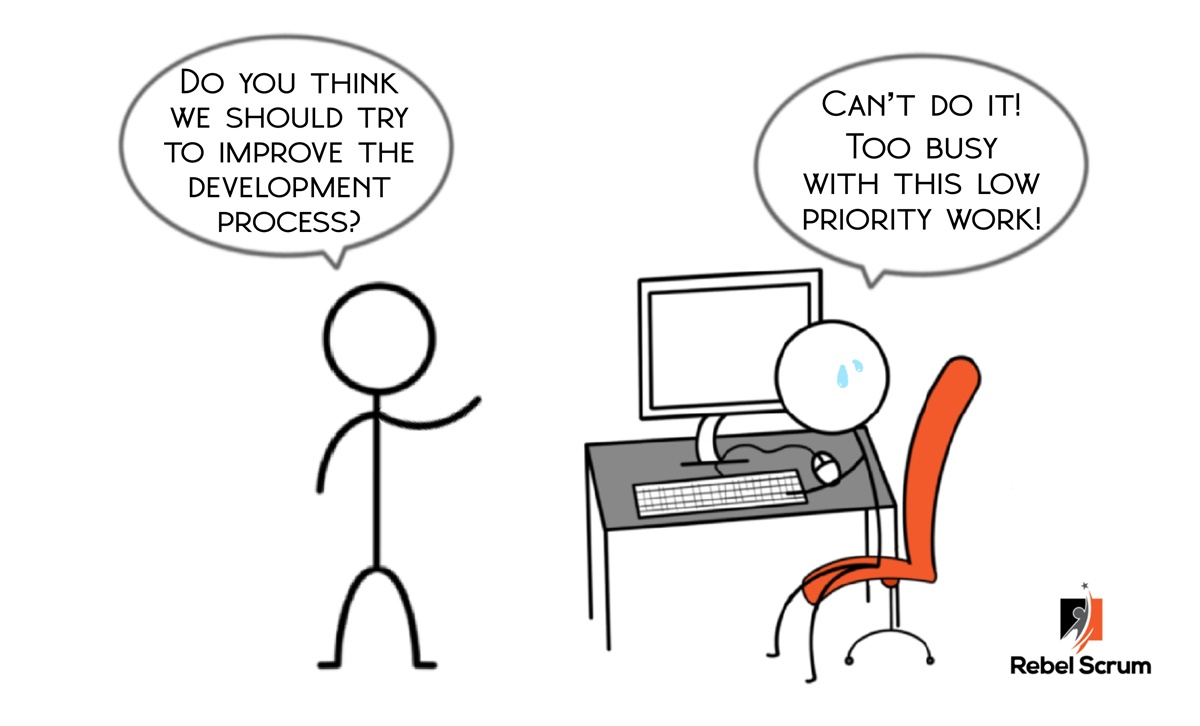
One of my favorite Agile books is actually 'Kanban' by David Anderson. In it he talks about the value of Slack time, or time when a Developer has finished all of their work.
Why Slack Matters
Anderson puts it best:
“Slack can be used to improve responsiveness to urgent requests and to provide bandwidth to enable process improvement. Without slack, team members cannot take time to reflect upon how they do their work and how they might do it better. Without slack they cannot take time to learn new techniques or to improve their tooling or their skills and capabilities. Without slack there is no liquidity in the system to respond to urgent requests or late changes. Without slack there is no tactical agility in the business.”— David Anderson, Kanban
Slack time is not wasted time. It is the breathing room that allows teams to step back, adapt, and grow. Not to mention the ability to deal with any emergencies that happen to come up.
The Temptation to Eliminate Slack
Many organizations aim for 100% utilization - as if such a thing were possible! They believe that if only Developers could be kept 100% busy, they would gain "perfect efficiency". But in reality, this isn't actually possible, and it often leads to tragically inefficient decisions (such as siloed teams).
When every minute is filled with tasks, there is no space to reflect on whether the work is being done in the best way. There is no margin for experimentation, learning, or adaptation. And ironically, teams that chase 100% utilization often end up slower and less responsive when urgent requests or unexpected changes arrive.
Slack Enables Continuous Improvement
Slack time is where continuous improvement happens. It is where Developers experiment with new techniques, explore better tools, and build skills that increase their effectiveness in the long run.
A Developer who has a free hour might learn a new testing framework.
A team that pauses between tasks may discover a simpler workflow.
A bit of margin allows a team to respond gracefully when late-breaking customer needs emerge.
Rather than being wasted, slack time creates resilience. It turns rigid systems into adaptable ones.
Conclusion
I'm not saying Developers shouldn't ask for more work when they have time. Initiative is a good thing. But when we place too much attention on keeping everyone busy, we forget that our purpose is to deliver value - not to keep everyone busy. Justs like everything in Scrum, it's all about balance and focusing on the right things.
Agile frameworks are built on the idea of inspection and adaptation, but neither is possible without the space to step back and reflect. Chasing 100% utilization may feel efficient, but it comes at the cost of long-term improvement and responsiveness. By embracing slack time, teams create the conditions for continuous learning, process improvement, and true agility.
Learn more about how to improve the flow of work in your Scrum team at the Professional Scrum with Kanban course with Rebel Scrum.
